

© Yuki Saito

I started playing tennis at age 11. I have met many people and seen a lot of wonderful things about each of them. Whether about my tennis style or me as a person, I want to take the good elements of other people, internalise them a little bit at a time, and become a collection of such things.
Ever since I was a child, if I was going to do something, I wanted to do it under the same conditions as everyone else. For example, when I was in elementary school, my teacher said that I could not take part in a relay race because I might trip and hurt myself if I ran. This really annoyed me. I thought it could be the same for anyone. Why was I the only one who could not take part in the race? What made it worse was that the teacher said this to my parents rather than speaking directly to me about it. I was really frustrated about not being able to make my own decision for myself.
Since I was very young, my parents and others close to me created an environment where I could give anything I wanted to try a go. They respected my wishes. I am very grateful for that. I learnt the importance of clearly conveying to others what I wanted to do, what I could do myself, and asking them for their help and cooperation where necessary. I also learnt the importance of understanding how so many people had been involved for me to get to where I am and of feeling gratitude toward them. These things became my foundation. It is about how I should be as a person, which comes before how I should be as an athlete. I am always thinking about how I should be as a person.

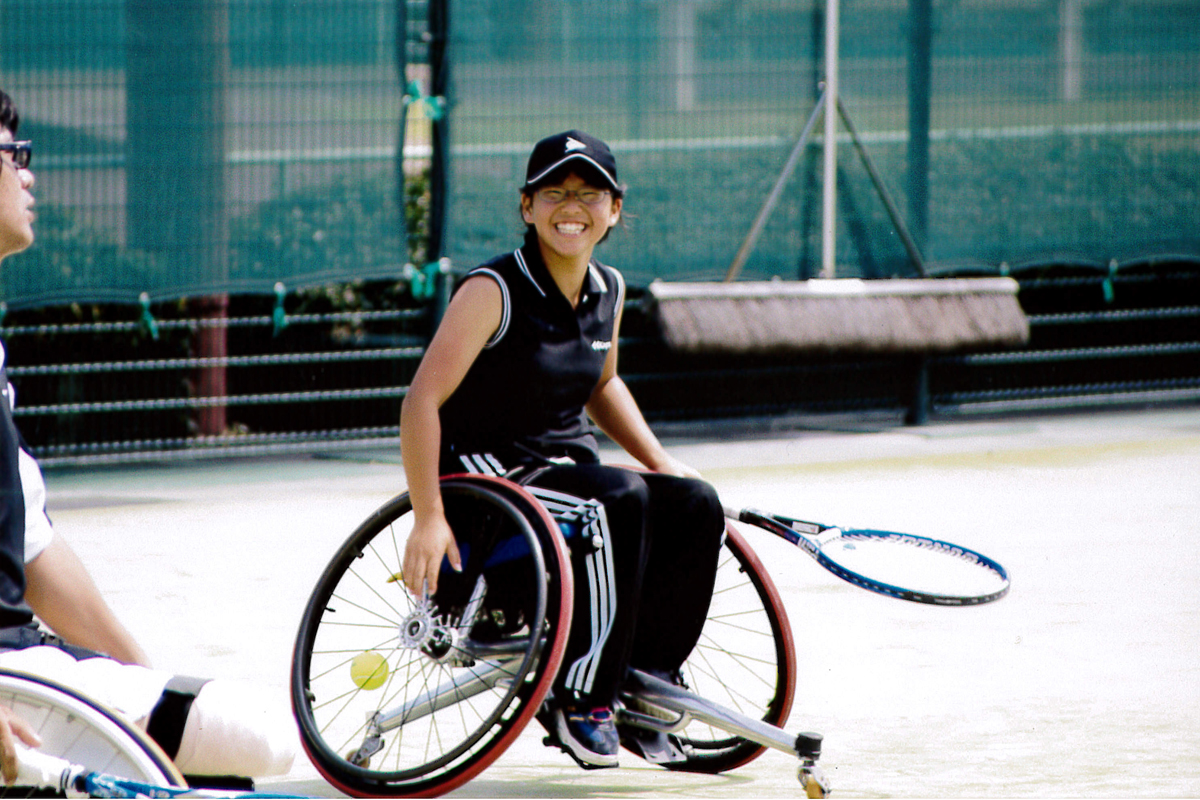
© IMG
As I grew, it became progressively difficult for me to walk due to the paralysis of my lower limbs caused by congenital spina bifida occulta. I started using a wheelchair when I was 11. Thinking about how I liked trying new things, my mother often asked me, “I heard about this event, do you want to go?”. She was casually encouraging me to try sport. I have always had a lot of curiosity, so my mother’s words triggered me to try a lot of different sport.
When I played wheelchair basketball, they created a special rule for me out of kindness because I was too short – if my shot grazed the basketball net or hit the hoop, it would be counted as a goal. Of course, I felt hated getting special treatment like that. When there was a ski camp as a school event, I wanted to ski just like everyone else. So, I had someone we knew let me try sit-skiing. If I was going to do something, I wanted to do it under the same conditions as everyone else. I was really stubborn that way.
I really enjoyed playing tennis from the start. I did not want people to see me playing badly, so I had no intention of playing in tournaments. Eventually, my tennis club entered me in a tournament because “it was only a local one”. Whenever I played in a tournament, whomever I was playing against, I wanted to win the match. I thought only about winning each match, and before I knew it, I was ranked No.1 in Japan at age 14.
I had never thought about winning a tournament or becoming No.1 in Japan. It was more like I kept thinking, “I want to win against this person”, and when I kept that up, the feeling became, “I want to win against everyone”. The result was that I became No.1 in Japan. To tell you the truth, I had no real awareness of being a champion.
I encountered a particularly important person when I was 14 at the Japan Open. I had entered the women’s doubles, but I was unable to compete due to an age restriction. That was when I met Ms Daniela Di Toro of Australia, who replaced me for doubles. She came up to me when I had not been able to sort out my feelings about not being allowed to play, and said, “You may be feeling very frustrated right now, but if you just keep on playing without forgetting how you feel right now, you can be No.1 in the world one day for sure. I can see it”. Daniela and I still keep in touch. Because she herself has been ranked No.1 in the world, she always cares about me and talks to me. I respect her very much as a person, not just as an athlete. Her style of playing tennis and the way she treats people is close to what I am aiming for. Daniela is the most important person to me right now. I can say I have met many really wonderful people through tennis.
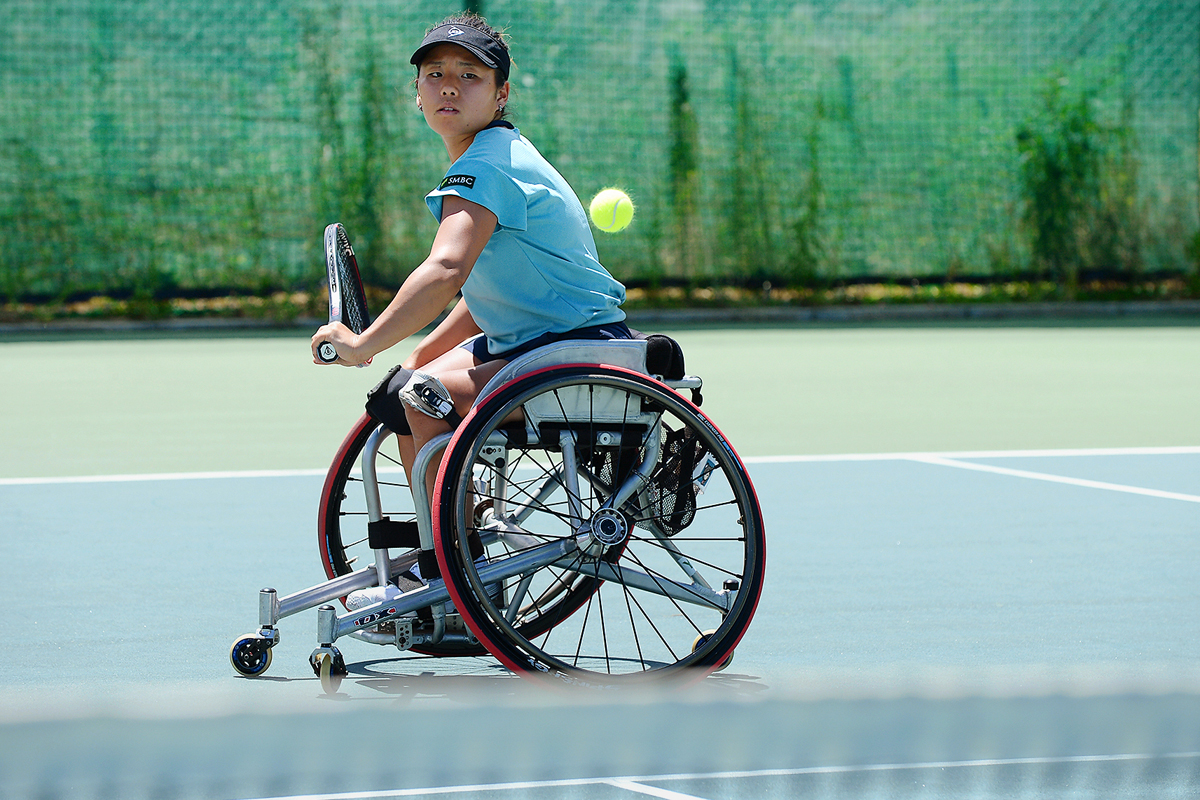
© Yuki Saito
A major turning point in my life came when I was 18. I participated in the 2012 London Paralympic Games, and to be honest, I was to end my tennis career in London. One of my goals in playing tennis was to play in the Paralympics, so I thought I had achieved what I wanted.
By actually playing in the Paralympics in London, I reaffirmed how wonderful wheelchair tennis was – the sights of the Paralympic Games, how the spectators purely enjoyed sport, whether it was the Olympics or the Paralympics. I did not get passed the quarterfinals in neither the singles or doubles, but I was satisfied with how I played in the matches. As a matter of fact, losing in London made me really wonder how far I could get if I continued playing tennis.
However, up until then, I was expected to do well in both tennis and in my studies. So, if I was going to continue playing tennis after graduating from high school, I wanted to make sure that I would not try to balance it with something else at the same time. I talked my thoughts through with my coach, parents, teachers and many other people, spending a lot of time. The decision that I reached was that I wanted to continue playing tennis, so I chose the path of becoming a professional tennis player.
After becoming a professional player, I was able to spend more time in training and thinking about tennis. I think those two things had a big impact. With that said, although I had turned pro in name, I did not feel any responsibilities as a professional tennis player until I was ranked No.1 in the world for the first time at age 20. Up to then, I just kept up that feeling of truly wanting to play tennis and wanting to beat whomever I was up against. Thinking about it now, I feel bad because my sponsors and the people around me supported me even though I had that kind of attitude. I feel genuinely sorry about not thinking much about what it meant to be a professional back then.
Even after being ranked No.1 in the world, I did not feel that I deserved it at the time. I felt that I was not yet strong enough as a player. Before then, there was always someone in front of me that I had to beat. Wanting to beat that person in a match and wanting to become a stronger player motivated me to keep on playing tennis. However, when I became No.1, there was suddenly no one ahead of me. On the other hand, I was studied by others to find a way to beat me. I did not know how to maintain my motivation. My ranking ended up falling, and it was when I had a goal again – people in front of me that I wanted to beat – that I was finally able to concentrate on playing tennis again. In that sense, the time leading up to the Rio Paralympic Games gave me a very strong, experience that was different from the time leading up to the London Paralympic Games.

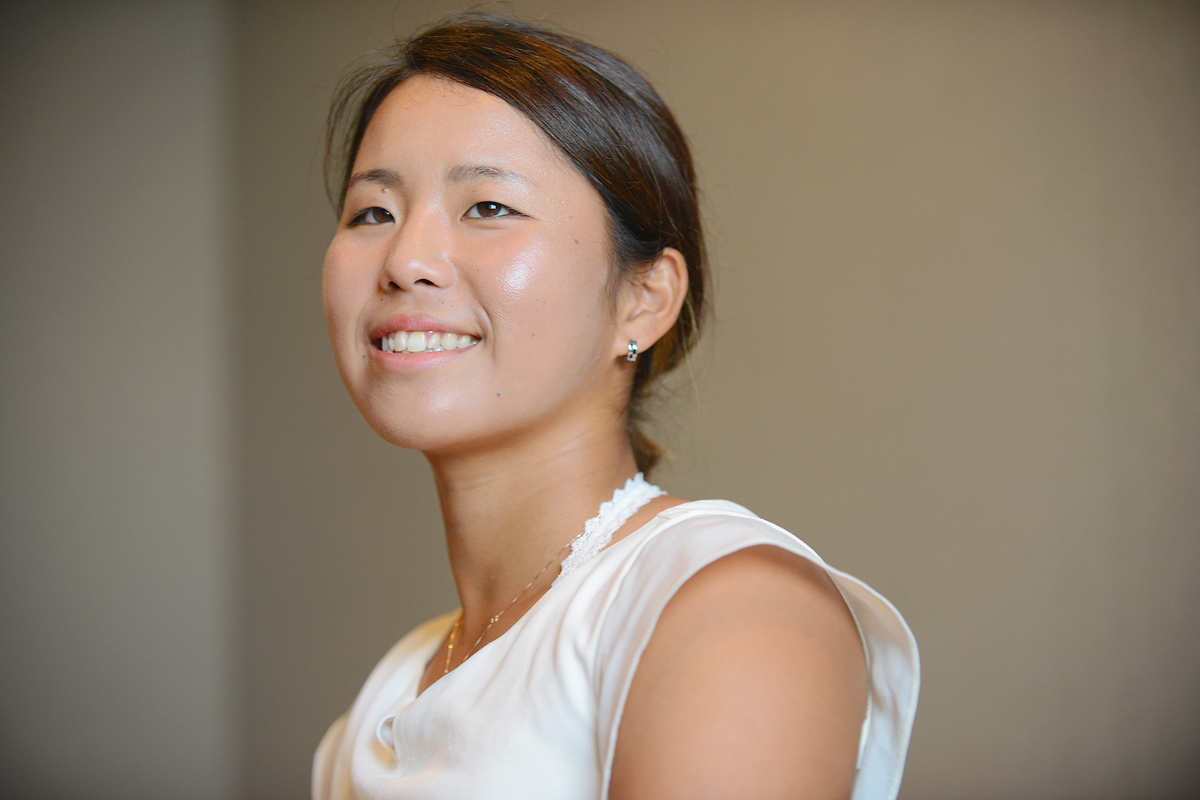
© Yuki Saito
I now have a long career in wheelchair tennis, and I will have the major experience of having competed in the Tokyo 2020 Paralympic Games. Even if in the future I stop competing at the top level, wheelchair tennis will be a part of my life. I have started thinking about what I can do for children in Japan who want to try wheelchair tennis or another para sport. After I retire, I want to help children grow their infinite possibilities through tennis.
Promoting international exchange between youth athletes is definitely something that I want to become involved in. For example, I would like to make use of my connections with athletes overseas and send Japanese youth athletes to their tennis clubs and bases of the overseas tennis players that I know. In exchange, I would like to invite youths from overseas to Japan. Right now, Japanese children go overseas to train, but they just go to the training camp outside of Japan and have no interaction with local athletes. It is just like being in Japan except that they are training overseas. It would be nice to have them also experience international exchange, such as through homestay experiences and training together.
It is fantastic that there has been a recent increase in the number of children who want to play tennis – so much so that classes for juniors are being set up. I really envy them since they will be able to play tennis with others as well as develop and become stronger together. At the same time, I think if they can also look abroad from a young age, and they can experience even more through exchange visits. With such stimulation, they gain a broad vision and be able to decide their own future paths. That is why one of my goals at the moment is to support interaction between the athletes of various different countries.

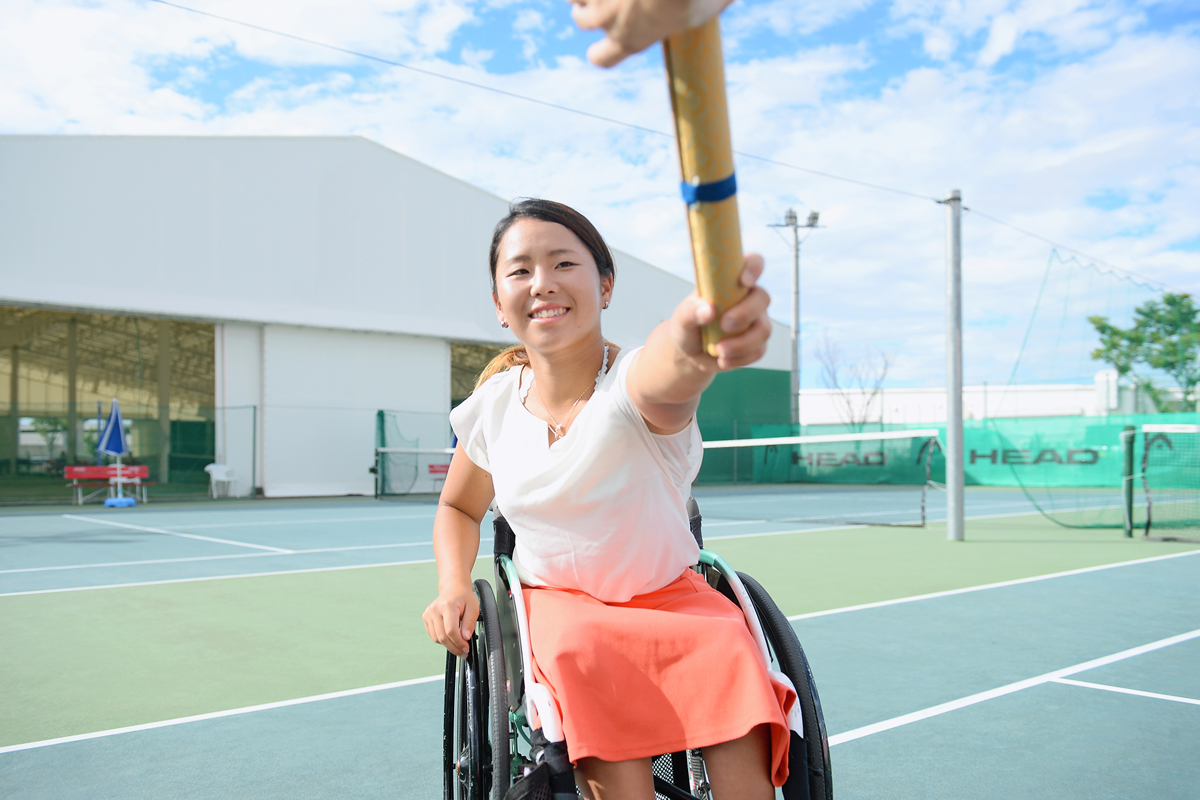
© Yuki Saito
I think I was very lucky that London 2012 was my first Paralympic Games. The London Paralympics is known for being the Games that was successful in changing the perception of the Paralympic Games and the athletes with impairments. I still vividly remember the atmosphere – being showered with cheers from the stands when we entered the stadium at the Opening Ceremonies. In London, I experienced both the frustration of losing as well as a feeling of achievement. That is the reason why I carried on playing tennis, and why I was able to move forward. That is something that has remained unchanged in me since I was a child. I am satisfied only if I feel that I have done everything that I can and seen things through.
There is a different level of recognition by the media and the public between able-bodied sport and those for athletes with impairments. The public does not have many opportunities to see para sport events even if they wanted to. However, the fact that the public holds expectations toward me is a sign that people are starting to pay attention to para sport. I know by achieving good results, I will bring more attention to para sport in general. I do not think that I could ask for more if my leaving good results will bring greater attention by people to para sport. For me, that is a motivating factor for achieving good results. Winning does not become a pressure on me.
There are only a handful of para athletes who are able to play actively as a professional athlete. That is why if people like me and Mr. Shingo Kunieda do well, then small children may start dreaming about becoming a professional wheelchair tennis player and making a living through sport.
There is obviously a big gap between Kunieda-san and me in terms of our level as an athlete. Children who have just started competing in this sport adore him. My place in all this is giving children a goal – the hope that they might be able to get as far as where I am. I want to be like a big sister to them whom they see and play tennis with at tennis tournaments. I think that for children, having someone like me as a midway point between them and a star athlete like Kunieda-san should help them see an achievable goal.
To make that possible, I want to convey to children that wheelchair tennis is a really enjoyable sport. And even more than that, I do not want to ever forget to enjoy tennis. Before Rio, when I was unsure about my future, competing in matches made me remember how much fun tennis was. The joy of playing is my driving force for moving forward. I also keep in mind not to forget feeling appreciation toward my parents, family, the tennis players who were my seniors and others around me. I feel it is my turn to show all of this to children.

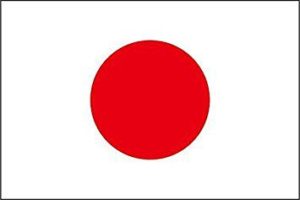
Started wheelchair tennis at the age of 11. Ranked No.1 in Japan at the age of 14. Played in the London 2012 Paralympic Games in her third year of high school and made it to the quarterfinals in women’s singles and doubles.
Won the French Open and US Open for the first time in 2014. In May the same year, was ranked No.1 in the world. Won the bronze medal in women’s singles at her second Paralympic Games – the 2016 Rio de Janeiro Paralympics. In October 2018, was chosen to represent Japan at the Tokyo 2020 Paralympics along with Shingo Kunieda.